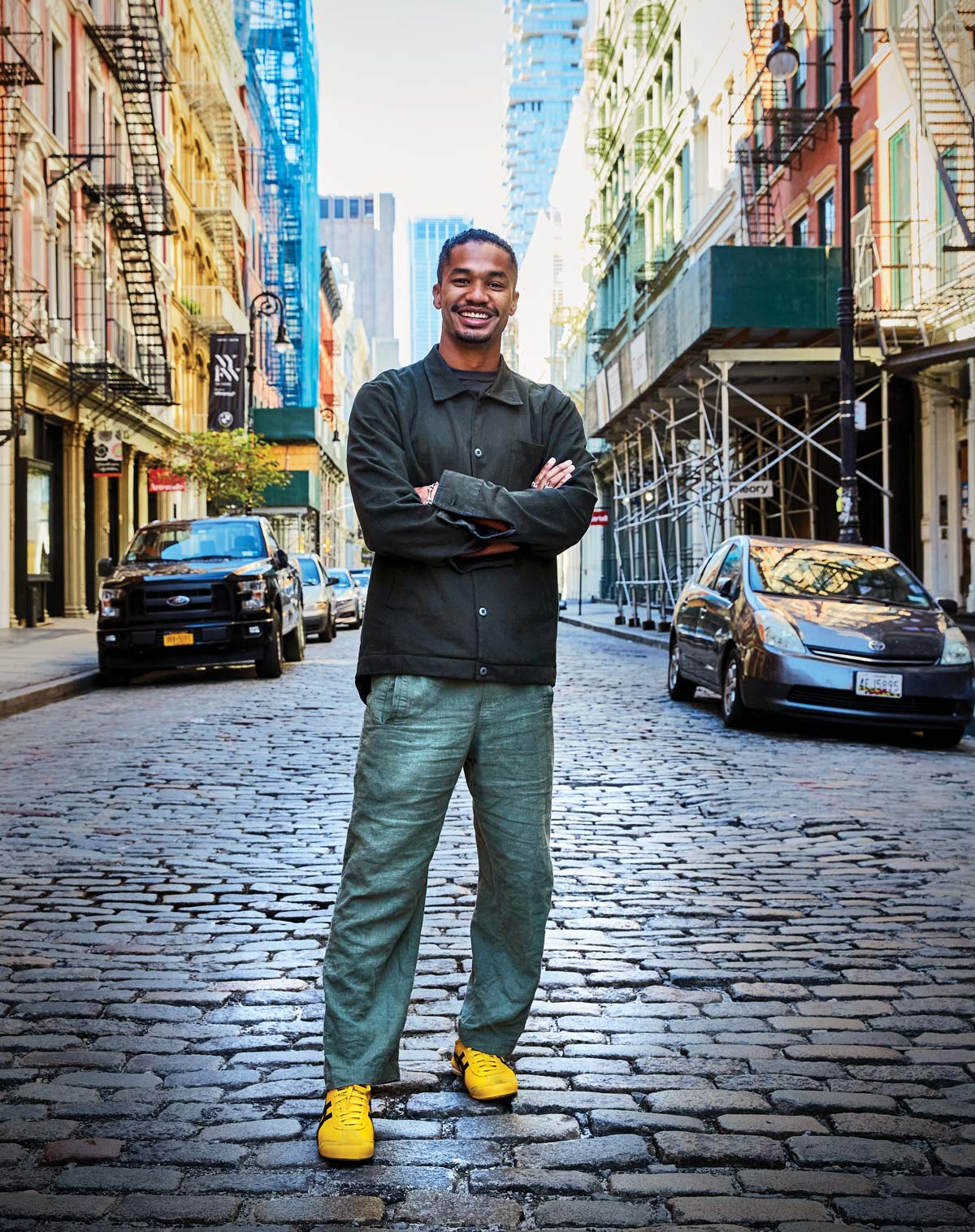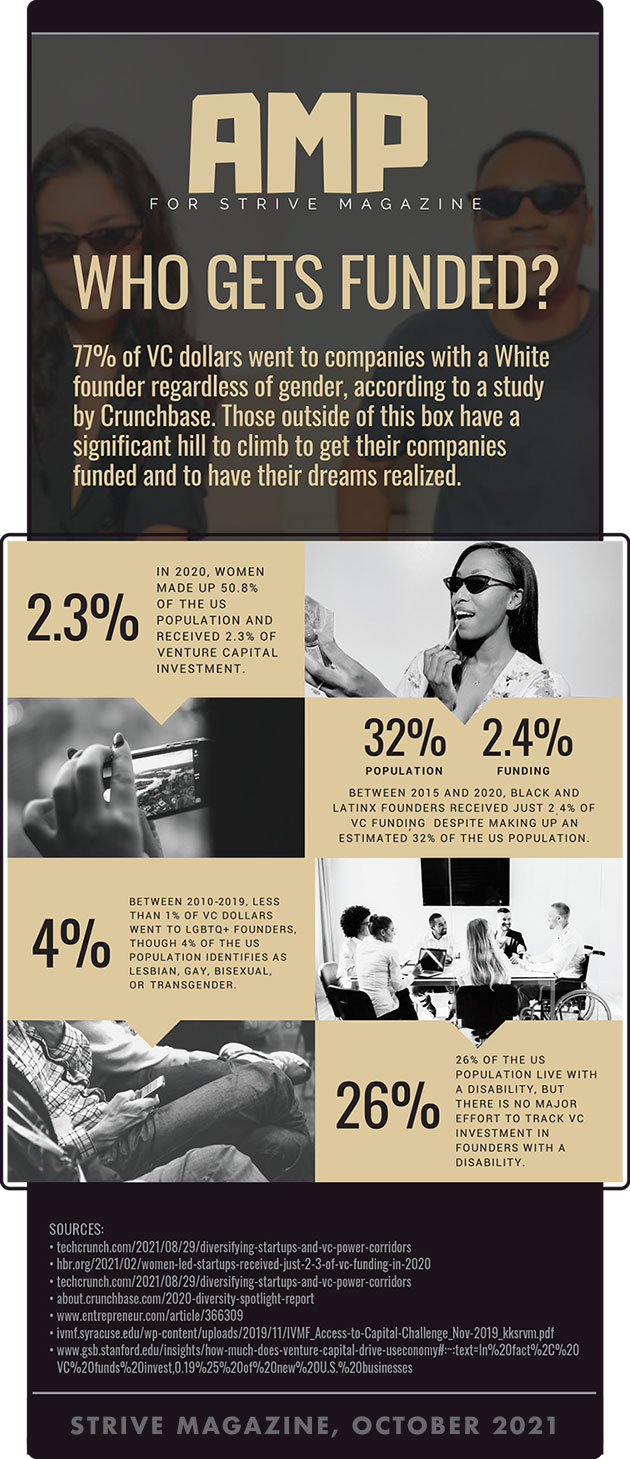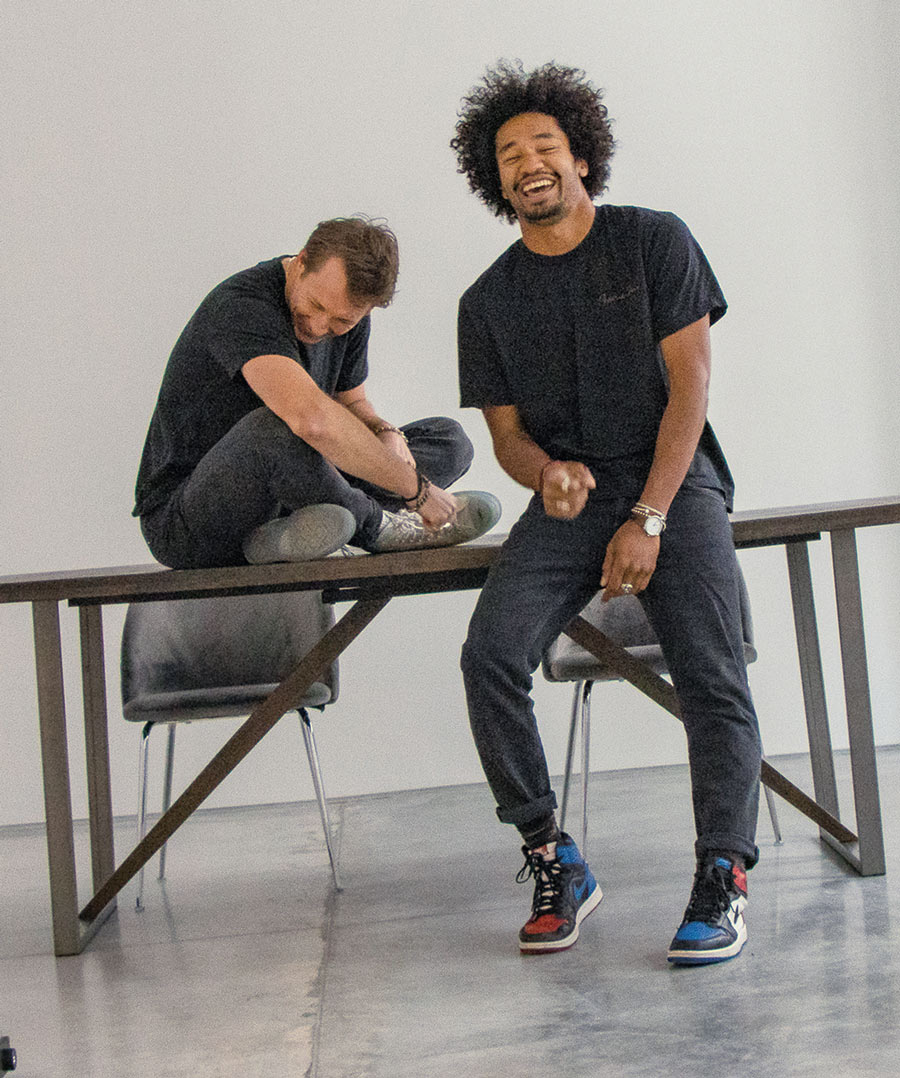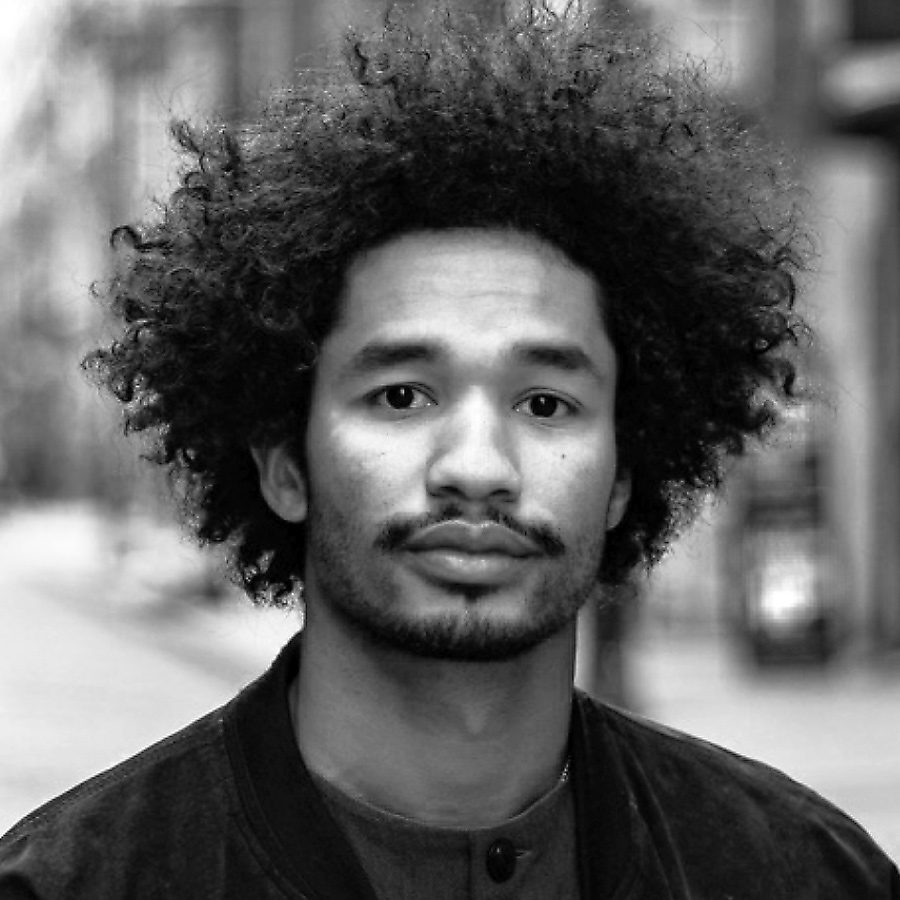
Embracing Inclusive Entrepreneurship
he word entrepreneurship often invokes an American romanticism of living the dream. For some, it is power and others wealth. For me, entrepreneurship means freedom. Freedom to choose my path, pursue my passions and do my laundry at a convenient time. Even more significantly, it is the freedom to determine the role I will play in the world, today and in the future.
Throughout America’s history, entrepreneurial freedom has been an economic driving force that has created jobs, spurred innovation and provided a path to build wealth. There is opportunity in entrepreneurship, and, as an entrepreneur, I answer the call to create new, productive opportunities for myself, my team and my community. As a Black American, I know and see how access to good jobs, entrepreneurial opportunities, and wealth creation have consistently and significantly lacked for diverse communities. As a Black entrepreneur in America, I’ve adopted a leadership thesis built from lived experience of entrepreneurial freedom, and that is rooted in empowerment: If every person is offered the agency to build a career around their passions, every person will experience entrepreneurial freedom.
Inequity has long been a problem in value creation through entrepreneurship, and the data confirms it. In 2016, the median White family had more than 10 times the wealth of the median Black family,1 which means more financial security to start a business, focus on education or invest in local communities. In the first half of 2021, Black startup entrepreneurs received just 1.2 percent of the record $147 billion in venture capital invested in U.S. startups.2 Proximity to wealth is a primary determining factor for entrepreneurial success.

Andrew was a quiet and creative kid who was largely misunderstood. People mistook his silence for attitude, and he was quickly labeled a “bad kid.” I was a Black, dyslexic kid with a short fuse who had trouble fitting in and performing well in the classroom. We bonded over our shared isolation and used it as fuel to create our own world through entrepreneurship, spending our weekends coming up with ideas with the dream of starting a company together one day.

Hard work and hustle aside, the company was given an early advantage through a seed investment made by Andrew’s father, which also came with access to a network of primarily white male investors. Along with our product we poured hours into and sleepless nights, this network contributed to us landing a spot in Stanford’s StartX program, one of the top venture accelerators in the world. Again, I was one of the only Black members of my cohort. Through the experience at StartX, we pivoted the business and grew our AdTech solution to over one billion impressions and 10 million downloads. We sold the company to Flowcode in 2019.
AskTipster is a story of access. Andrew and I had access to capital and networks that empowered us to pursue an entrepreneurial journey. Most Black entrepreneurs lack this type of access. Their hard work does not have the same horsepower, but it should. A new entrepreneurial freedom event began in 2020, and a focus on empowerment can ensure that we eliminate the access disparity, not just for Black entrepreneurs but for every underrepresented group. Disparities in entrepreneurship exist for many people, including, but not limited to, women, BIPOC, the LGBTQ+ community, people with disabilities, veterans and the formerly incarcerated.
Our opportunity is to build new technology to replace old systems, new ideas for what it means to be employed, and new definitions of success. Entrepreneurial freedom is not unique to the self-employed. Rather, it is an opportunity driven by people committed to helping others access the resources and opportunities they need to define and achieve their vision of success.

Where AMP is looking to solve capital access disparities, there are countless allies in our journey doing incredible work toward a shared mission. I count on many friends—people like Daniel Acheampong, Sydney Sykes and Marlon Thompson. Daniel’s accelerator Visible Hands helps overlooked founders build venture-backed tech companies from scratch. Sydney’s BLCK VC is empowering the next generation of Black Venture Capital investors, and Marlon started Future Capital to inspire and train the next generation of diverse angel investors.

My mission is to build an ecosystem of opportunities. I hope that in sharing my story, I will inspire action toward a shared goal. Working together, we can ensure that entrepreneurial freedom is possible everywhere. That is the future I dream of, and I invite you to dream the same.
1https://www.mckinsey.com/industries/public-and-social-sector/our-insights/the-economic-impact-of-closing-the-racial-wealth-gap 2https://news.crunchbase.com/news/something-ventured-funding-to-black-startup-founders-quadrupled-in-past-year-but-remains-elusive/

Prior to AMP, Taylor co-founded AskTipster, a fashion technology and growth marketing company that was acquired by Flowcode in June 2019. He also founded the global soccer agency Only4Stars, which develops and manages elite talent with representation, marketing, and sports tourism functions. Taylor was recognized in 2018 by the Young Black Business Awards for his work at sports technology company BlocSide Sports, now part of Only4Stars. He lives and works in New York City.
Prior to AMP, Taylor co-founded AskTipster, a fashion technology and growth marketing company that was acquired by Flowcode in June 2019. He also founded the global soccer agency Only4Stars, which develops and manages elite talent with representation, marketing, and sports tourism functions. Taylor was recognized in 2018 by the Young Black Business Awards for his work at sports technology company BlocSide Sports, now part of Only4Stars. He lives and works in New York City.